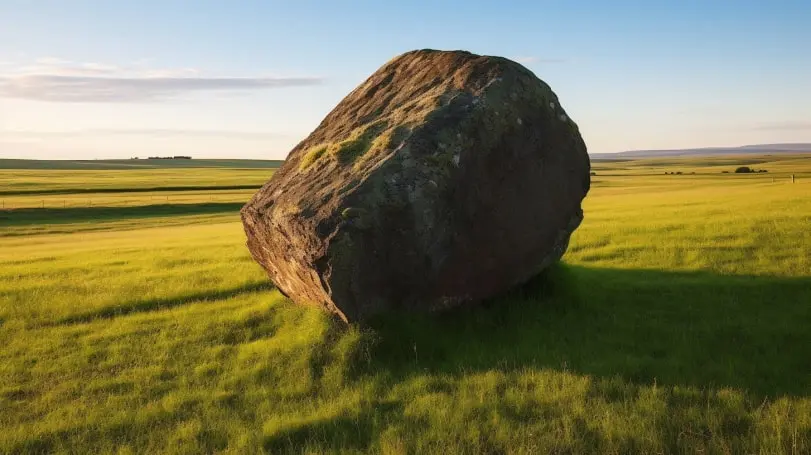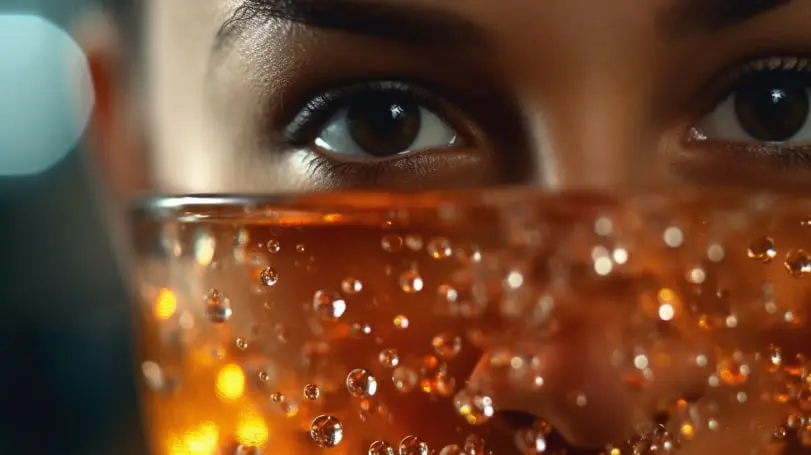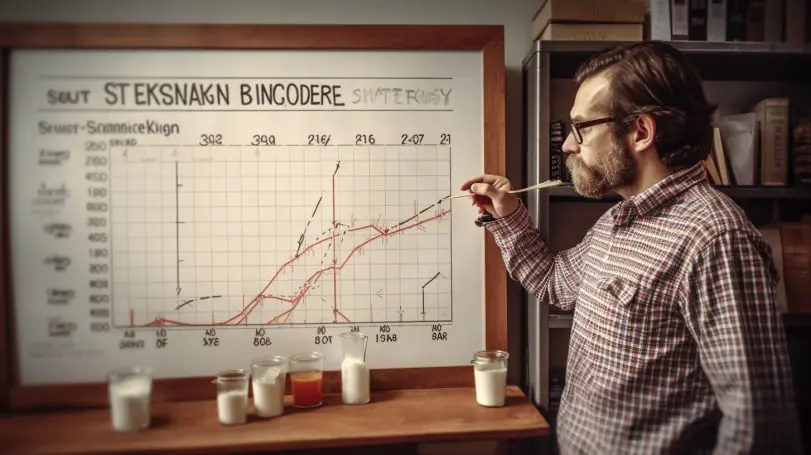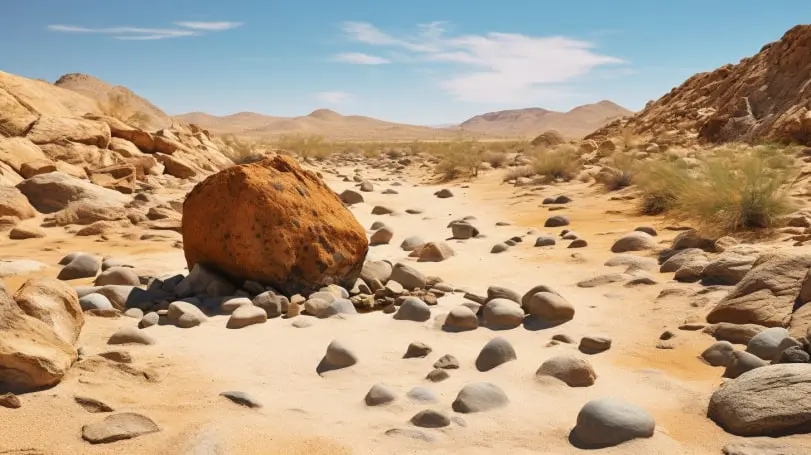Can Sprite Cause Kidney Stones?
Can Sprite Cause Kidney Stones? This perplexing question sets the stage for an exploration into the realm of beverage-related health concerns.
Kidney stones, notorious for their excruciating pain and discomfort, have become increasingly prevalent in our modern world.
As we sip on our favorite carbonated drinks, doubts arise about their potential contribution to this agonizing condition.
So, brace yourself as we embark on a journey through scientific research and unravel the truth behind the relationship between Sprite and kidney stones.
Prepare to be enlightened as we examine the evidence, dispel myths, and arm you with valuable knowledge to make informed decisions about your beverage choices and kidney health.
Key Takeaways
- Excessive consumption of sugary drinks, such as Sprite, increases the risk of kidney stone development.
- High sugar intake, particularly from sugary drinks, can contribute to the formation of kidney stones by increasing urinary calcium excretion.
- The phosphoric acid in carbonated beverages, including Sprite, has been linked to the formation of kidney stones.
- Prevention and treatment of kidney stones involve a combination of lifestyle changes, such as increasing fluid intake and reducing salt consumption, and medical interventions. Individuals at risk or with a history of kidney stones should consult their healthcare provider.
Understanding Kidney Stones and Their Causes
The understanding of kidney stones and their causes is crucial in determining whether or not sprite consumption can contribute to the formation of these painful mineral deposits.
Kidney stones are hard, solid masses that form from crystals in the urine.
These stones can be as small as a grain of sand or as large as a golf ball and can cause excruciating pain when passed through the urinary tract.

The most common types of kidney stones are calcium oxalate, uric acid, struvite, and cystine stones.
Kidney stone prevention involves dietary recommendations such as increasing fluid intake, reducing sodium and animal protein consumption, and avoiding foods high in oxalates such as spinach, chocolate, and nuts.
Other preventive measures include maintaining a healthy weight, exercising regularly, limiting alcohol consumption, and monitoring medication use.
While certain beverages like soda have been linked to an increased risk of kidney stone formation due to their high sugar content and potential for dehydration, more research is needed to determine if specifically drinking sprite can lead to kidney stone development.
The Link Between Phosphoric Acid and Kidney Stones
Phosphoric acid, a common ingredient in carbonated beverages, has been linked to the formation of small, hard mineral deposits known as kidney stones.
This acid is used to give soda its tangy flavor and extend its shelf life. However, excessive consumption of phosphoric acid can lead to several health problems, including kidney stones.

Studies have shown that high levels of phosphoric acid in the body can increase the risk of developing kidney stones.
This is because phosphoric acid binds with calcium in the urine and forms crystals that eventually grow into larger stones.
To prevent this from happening, it is important to limit your intake of carbonated beverages and other foods that contain high amounts of phosphoric acid.
Drinking plenty of water and staying hydrated can also help flush out excess minerals from your kidneys and reduce your risk of developing kidney stones.
The Role of Sugar in Kidney Stone Formation
Excessive sugar consumption in beverages can lead to the formation of what type of mineral deposits in the kidneys?
Sugar’s impact on kidney stone formation has been a topic of interest among researchers and healthcare professionals.
Studies have shown that high sugar intake, particularly from sugary drinks, can increase the risk of developing kidney stones.

To understand how sugar contributes to kidney stone formation, it is important to know that excess sugar in the body leads to an increase in insulin levels.
This, in turn, causes an increase in urinary calcium excretion which can result in the formation of calcium oxalate crystals.
These crystals are one of the most common types of kidney stones found in individuals with a history of high sugar intake.
To prevent this condition, dietary recommendations suggest limiting added sugars and consuming more water and other low-sugar beverages.
Additionally, increasing physical activity and maintaining a healthy weight may also help reduce the risk of developing kidney stones related to excessive sugar consumption.
Can Sprite Cause Kidney Stones?
like many other carbonated beverages, contains phosphoric acid. Some studies suggest that high levels of phosphoric acid may potentially increase the risk of kidney stone formation.
However, it’s crucial to remember that there are multiple factors at play when it comes to kidney stone development. Simply enjoying an occasional Sprite is unlikely to cause kidney stones on its own.

That being said, moderation is key. Excessive consumption of carbonated drinks, including Sprite, can lead to dehydration, which is a risk factor for kidney stone formation.
So, staying hydrated with water and maintaining a balanced diet that includes plenty of fluids is important in preventing these little mineral annoyances.
If you’re concerned about kidney stone formation, it’s always a good idea to consult with a healthcare professional.
They can provide personalized advice based on your unique circumstances and help you make informed choices about your diet and lifestyle.
Other Factors that Contribute to Kidney Stones
Various lifestyle habits and medical conditions have been found to contribute to the formation of kidney stones.
One factor is dehydration, which can lead to concentrated urine that contains high levels of minerals and other substances that can form stones in the kidneys.
Obesity is another risk factor because it increases the level of calcium in urine and reduces urine volume, making it easier for stones to form.

Additionally, urinary tract infections can cause changes in the chemical composition of urine and promote stone formation.
Dietary habits also play a role in kidney stone development. Consuming foods high in salt, protein, and sugar can increase the risk of developing certain types of stones.
Family history is another significant risk factor for kidney stone formation since genetics may influence how much calcium or other minerals get absorbed by the body from food or how well urine is excreted from the kidneys.
Research on the Effects of Soda Consumption
Recent research has examined the potential effects of regular soda consumption on overall health and wellness.
Studies have shown that consuming high amounts of sugary drinks like soda can lead to various health consequences, including an increased risk of developing kidney stones.
Here are four key findings from recent studies:

- Soda consumption is associated with a higher risk of kidney stone development due to its high sugar content.
- Drinking just one or two sodas per day can increase the likelihood of developing kidney stones by up to 33%.
- Regular soda drinkers tend to consume fewer healthy beverages, such as water or tea, which can also contribute to kidney stone formation.
- Choosing healthier alternatives to soda, such as water or herbal tea, may reduce the risk of developing kidney stones.
Prevention and Treatment of Kidney Stones
Prevention and treatment of kidney stones involve a combination of lifestyle changes, such as increasing water intake and reducing salt consumption, as well as medical interventions like extracorporeal shockwave lithotripsy or ureteroscopy.
The first step in preventing kidney stones is to increase fluid intake. Drinking enough fluids can dilute the urine and decrease the concentration of minerals that form kidney stones.
Experts recommend drinking at least 8-10 glasses of water per day, but those with a history of kidney stones may need to drink more.
In addition to increasing fluid intake, dietary adjustments can also help prevent kidney stones. Foods that are high in oxalate should be limited or avoided since they can contribute to the formation of calcium oxalate stones.
Examples include spinach, rhubarb, nuts, chocolate, and tea. Reducing sodium intake is also important since high levels of sodium can increase the amount of calcium in the urine.
A table below shows some examples of foods that contain high amounts of oxalate and sodium:
| High Oxalate Foods | High Sodium Foods |
|---|---|
| Spinach | Processed meats |
| Rhubarb | Canned soups |
| Nuts | Potato chips |
| Chocolate | Pizza |
| Tea | Cheese |
By making these lifestyle changes and dietary adjustments, individuals may be able to reduce their risk for developing kidney stones.
However, it is important to consult with a healthcare provider before making any significant changes to one’s diet or exercise routine as individual needs may vary based on age, gender, health status and other factors.
Making Informed Decisions About Your Health and Soda Consumption
To make informed decisions about their health and soda consumption, individuals need to weigh the potential impact of regular soda intake on their overall well-being, much like a person weighing the pros and cons of a business investment.
Soda consumption has been linked to various health problems, including obesity, type 2 diabetes, and dental decay.
One specific concern is the potential link between soda intake and kidney stones.
While more research is needed to draw definitive conclusions, some studies have suggested that certain types of sodas may increase the risk of developing kidney stones due to their high levels of phosphoric acid.
Consuming healthy alternatives and practicing moderation can help mitigate the potential negative effects associated with soda consumption.
Drinking water instead of soda can not only reduce caloric intake but also improve overall hydration levels in the body.
Additionally, reducing or eliminating sugary drinks from one’s diet may lower the risk of developing chronic diseases such as heart disease and type 2 diabetes.
Moderation is key when it comes to soda consumption; occasional indulgence is unlikely to cause harm if balanced with an otherwise healthy diet and lifestyle.
Ultimately, making informed decisions about one’s health requires understanding both the benefits and risks associated with different food choices.
Frequently Asked Questions
What is the recommended daily intake of soda to avoid kidney stones?
The recommended daily intake of soda to avoid kidney stones is zero. High consumption of carbonated beverages, including soda, has been linked to an increased risk of developing kidney stones due to their high sugar and phosphoric acid content.
Can drinking other carbonated beverages, like sparkling water, lead to kidney stones?
Carbonation effects on kidney stone formation are inconclusive, but citric acid influence is clear. Sparkling water and other carbonated beverages may contribute to stone formation due to their acidic nature.
Are there any natural remedies to prevent or treat kidney stones?
Herbal remedies and dietary changes may be effective in preventing and treating kidney stones. Acupuncture and massage therapy have also been explored as potential complementary therapies. Further research is needed to confirm their efficacy.
Can frequent consumption of citrus fruits, like lemons and oranges, increase the risk of kidney stones?
While lemon water is often promoted for its health benefits, excessive consumption of lemonade can increase the risk of developing kidney stones due to its high citric acid content. This underscores the importance of moderation and balanced intake of citrus fruits.
How long does it take for kidney stones to pass and what are the symptoms to look out for?
The symptoms of passing kidney stones include severe pain, nausea, and vomiting. Recovery time depends on the size and location of the stone. Medical treatments for kidney stones have pros and cons, including surgery, shockwave therapy, and medication for pain management.
Conclusion
Kidney stones are a common health problem affecting millions of people worldwide.
While there are many factors that contribute to the formation of kidney stones, research suggests that soda consumption may play a role in their development.
Specifically, the phosphoric acid and sugar found in soda have been linked to an increased risk of kidney stone formation.
Studies have shown that individuals who consume high amounts of soda are more likely to develop kidney stones than those who do not.
In fact, one study found that women who drank just one serving of soda per day had a 23% higher risk of developing kidney stones than women who did not drink soda at all.
This statistic emphasizes the importance of limiting soda consumption as part of a healthy lifestyle.
Overall, it is important for individuals to be aware of the potential health risks associated with consuming high amounts of soda or other sugary beverages.
By making informed decisions about their diet and taking steps to reduce their intake of these drinks, individuals can lower their risk for developing kidney stones and other health problems associated with excessive sugar consumption.
With proper prevention and treatment strategies in place, individuals can take control over their health and improve their overall wellbeing.

